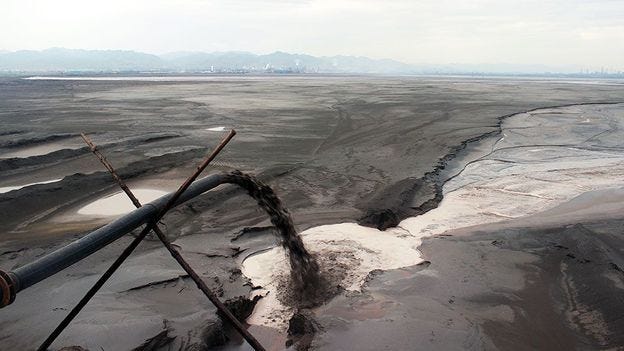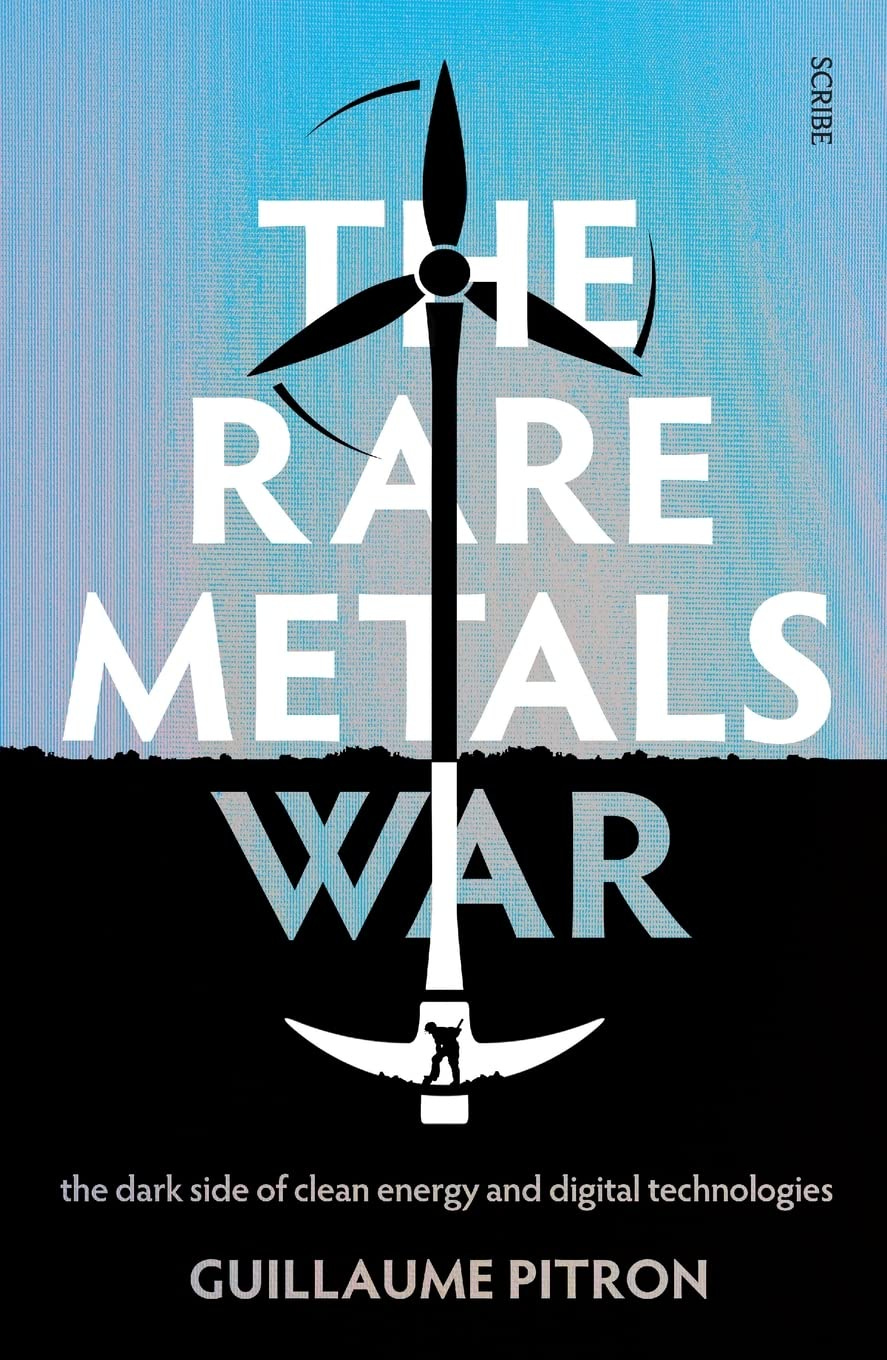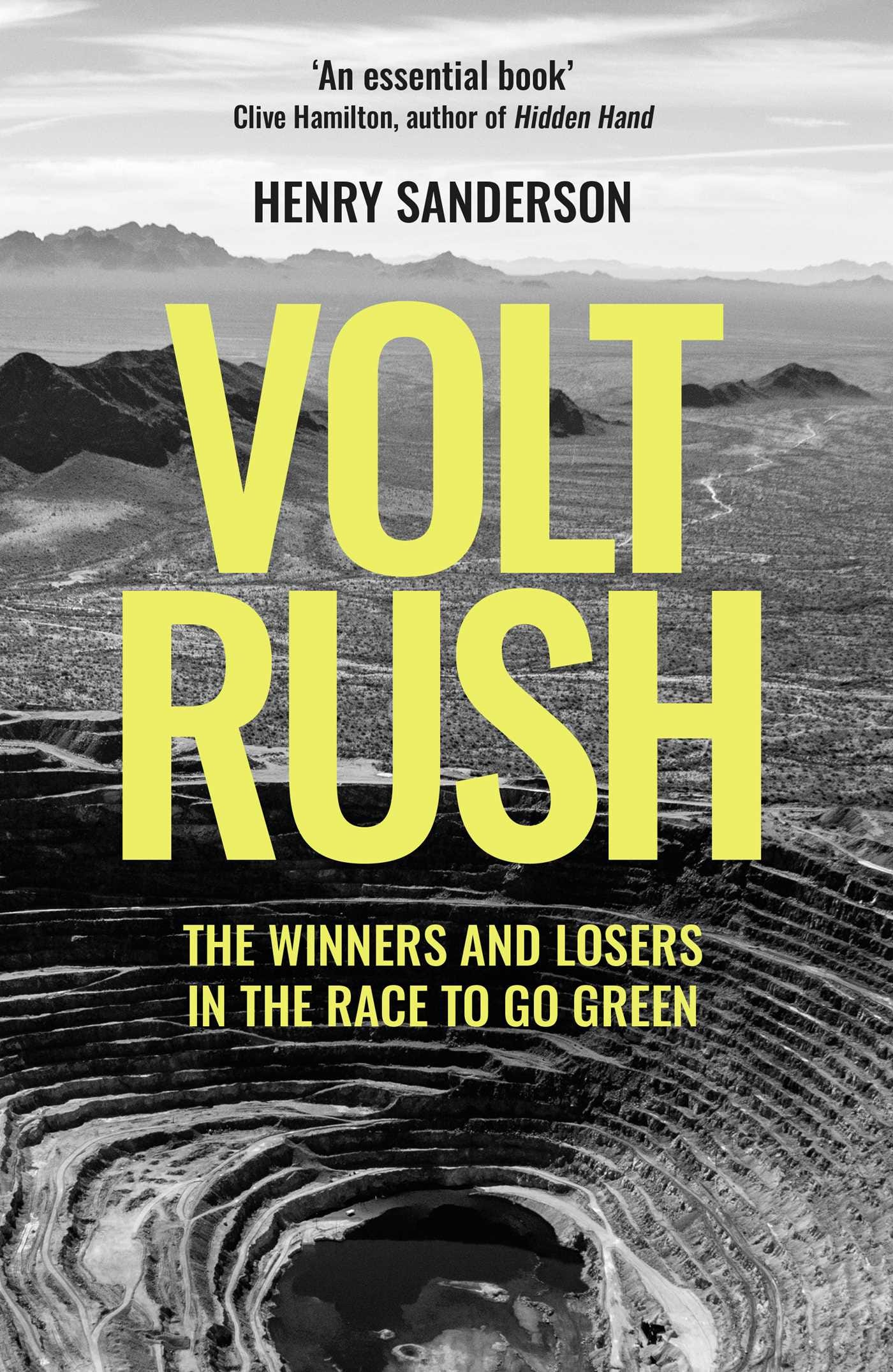The Dark Side of the Green Energy Revolution
A review of The Rare Metals War: The Dark Side of Clean Energy and Digital Technologies by Guillaume Pitron
We should not destroy our planet
We require massive amounts of energy resources to keep going
The tension between these two statements is the conundrum we all face right now.
As early as Ancient Greece we have wondered whether our actions can impact the climate. Far earlier than that we attempted to influence the climate by petitioning the gods to send us deluges of rain.
Now that we have abolished the gods, we petition nation-states and corporations to prevent our planet from cooking.
The doomsday mark has been set at 2°C above pre-industrial levels.
We have witnessed mass political mobilization in recent years to address the climate crisis, most recently symbolized by the Paris Climate Accords adopted in 2015 by 196 parties, seeking to keep global temperature increase at bay.
The globalist movement to address the climate crisis is, of course, not uncontroversial. Anyone who has taken Geology 101 can point to the brute fact of cyclical climate change over the last however many billion years on earth in the absence of humans, that the earth naturally recycles carbon dioxide through the formation of calcium carbonates, and that volcanoes produce more greenhouse gas than even the most ambitious coal burning nation. On the other hand, filling the oceans with plastic is a patently human trademark that no amount of geological time could replicate. We must take responsibility for what we can.
The fact remains that we have not collectively come to grips with the societal costs of either letting our course of action continue unchecked or the consequences of top-down enforcement of climate-change policy that disproportionately effect what is called the ‘real economy’ — the extraction, production, and transportation of raw materials from the earth such as farming, mining, and manufacturing. The ‘service economy’ while appearing more environmentally friendly, being nestled in its shimmering digital cloud, depends entirely on the ‘real economy.’ This realization has not yet materialized in places such as the Netherlands where Dutch farmers are protesting the government’s war on their livelihoods in the name of reducing nitrogen emissions, notwithstanding the exacerbated food insecurity that much of the world is experiencing at the present moment.
The solution to the climate crisis that the global consensus has arrived at is to increasingly adopt ‘green’ technologies such as windmills, solar panels, electric cars and other alternatives to hydrocarbon energy and its resultant pollutants.
This book, The Rare Metals War, sounds the alarm on the dark side of this beatific vision. To be clear, neither the author nor I are opposed to aspirations for clean energy—it is absolutely necessary in the long run—but it has become increasingly clear that the dynamics of the current movement are not so green after all.

In a nutshell the thesis of this book is as follows: Reducing reliance on hydrocarbon energy (oil) means increasing reliance on rare earth metals, which are not only tremendously costly and environmentally damaging to mine and refine, but are increasingly under the control of a Chinese government that realizes the political leverage embedded in this resource. As a result, while wealthy nations can appear to their comrades to be cleaning up their act on the environmental front, in reality they are only delocalizing the damage to underdeveloped regions, conveniently out of sight and out of mind. He explains:
In reality, these energies — still qualified as ‘green’ or ‘carbon-free’ because they help us wean ourselves off fossil fuels — depend on activities that produce greenhouse gases. It takes prodigious quantities of electricity from power plants to operate a mine, refine minerals, and transfer them to a manufacturer to be used in a wind turbine or solar panel. The result is tragically ironic: the pollution no longer produced in urban areas thanks to electric cars has merely been displaced to the areas where the resources needed for this very technology are mined. The energy and digital transition therefore belong to the wealthy. The most affluent areas are relieved of pollution by dumping its impacts on the most destitute and remote areas. But what can we do if we’re not aware there is a problem in the first place? This is where our energy model is particularly pernicious: in contrast to the carbon economy, whose pollution is undeniable, the new green economy hides behind virtuous claims of responsibility for the sake of future generations. (p.48-9)
Meanwhile, China accumulates economic and political power because they control large swathes of rare earth metal production.
“By seeking to break free from fossil fuels and turn an old order into a new world, we are in fact setting ourselves up for a new and more potent dependence.” (p.16)
The phone or computer that you are reading this on contains rare earth metals. They are coveted for their fluorescent, conductive, and magnetic properties among others. Your car, digital devices, solar panels, and beyond are dependent on these metals in minute but nevertheless indispensable quantities. National security and all of its requisite weaponry and machinery also depends on them. According to one analyst, the quantity of rare earth metals required by the entire US military for three years could fit inside a single backpack (p.111), but without that backpack it would be brought to its knees.
To sustain our technological lust we will be required to extract ever growing quantities of these metals from the earth. Pitron writes:
…our quest for a more ecological growth model has resulted in intensified mining of the Earth’s crust to extract the core ingredient — rare metals — with an environmental impact that could prove far more severe than that of oil extraction. Changing our energy model already means doubling rare metal production approximately every fifteen years. At this rate, over the next thirty years we will need to mine more mineral ores than humans have extracted over the last 70,000 years (p.15-16)
This extraction also happens to be carried out in what are often appalling conditions in less developed regions. The cover of another recently released book gives a sufficient summary:
To make a long story very short, the green energy revolution is not a win-win scenario all around. Yet another recent book investigates, alongside the book under review, who loses:
Spoiler alert: the answer is not just oil companies. The environment — the holy grail itself — may end up on the losing end. Even the ocean is now being partitioned up by countries eager to mine the ocean floor for metal-hungry green tech (p.142-147).
What now? There is some hope. Part of that hope is to figure out how to recycle these rare earth metals. Countries such as Ghana and Nigeria are filled with electronic gadget graveyards exported from Japan (p.45). Heaps of discarded electronics lie moldering all around the globe. At the present, retrieving and un-alloying the metals found in minute quantities in these gadgets is economically unfeasible, costing more than the original mining (p.42-46). It is a dead-end that will remain dead until necessity says otherwise. After all, necessity is the mother of invention.
Frankly, we have not yet figured out how to sustain humanity’s insatiable need for energy in the long run. We must continue to invest in research and innovation on the clean energy front. In its current incarnation, the green energy movement may not be the answer, but it is a start.
Nuclear energy still remains the best bang-for-buck energy source we have, but faces many obstacles; some reasonable, some not. Climeworks is pioneering a technology to directly capture carbon dioxide from the atmosphere (allowing Bill Gates to unhypocritically (?) fly around the globe in his private jet to talk about climate change). In another arena an ambitious company called Quaise Energy aims to drill through earth’s crust to tap into unlimited geothermal energy from the earth’s mantle.
Enough tinkering around and perhaps we will serendipitously stumble onto our energy salvation — hopefully before apocalypse.








